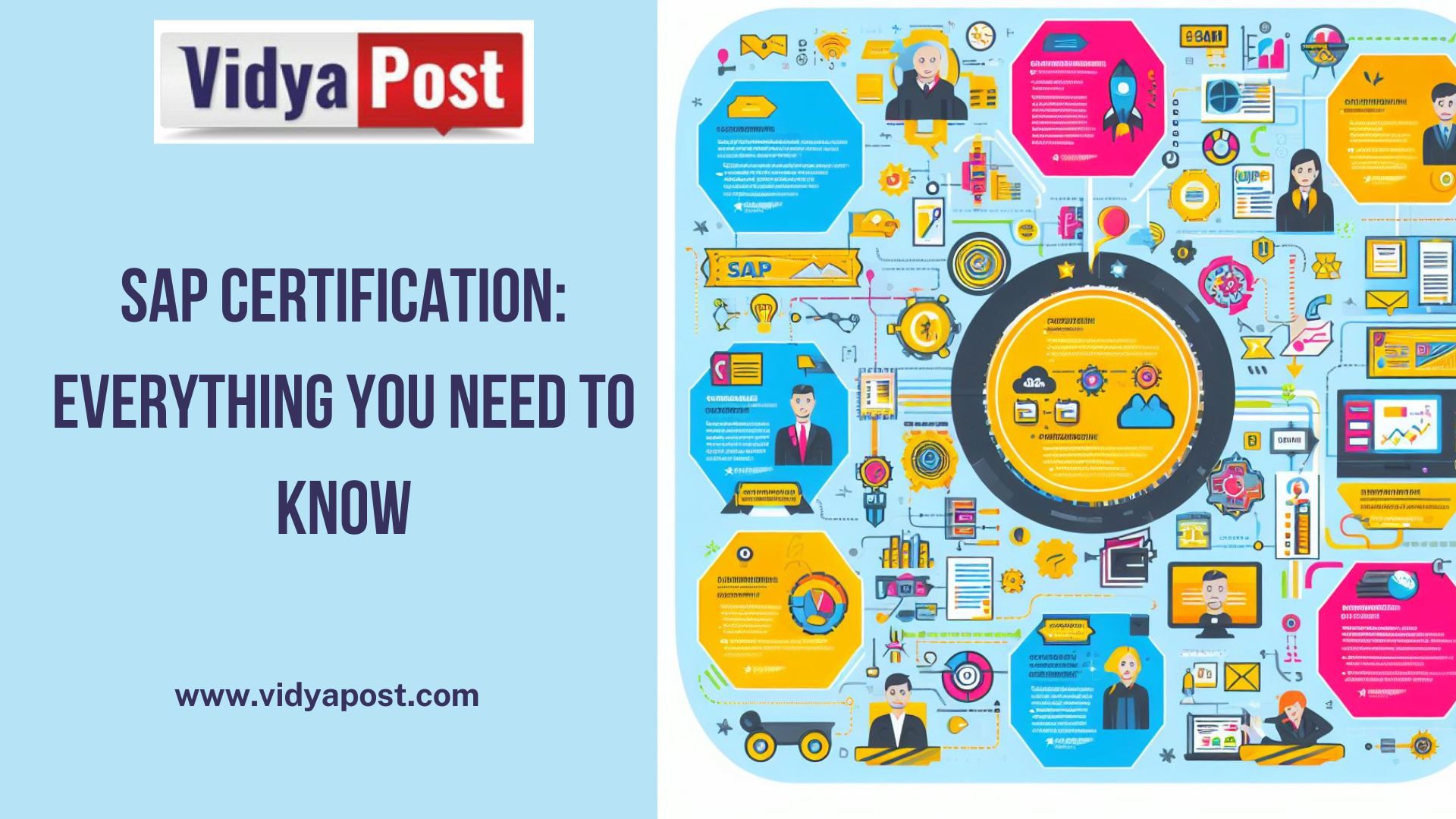SAP Certification: Everything You Need to Know

SAP, which stands for 'Systems Applications and Products' was originally developed to allow businesses to interact using a common database and a comprehensive suite of applications. Founded in 1972 by five IBM employees in Germany, SAP has evolved over the years, becoming a key player in the software industry, with clients including major corporations like Microsoft and IBM. SAP's latest R/3 framework offers robust capabilities for managing various aspects of business, from financial assets to production operations.
What is SAP Certification?
SAP Certification, short for Systems, Applications, and Products in Data Processing, encompasses various courses, covering topics such as human resource software administration, database management, and business training. Obtaining SAP certification can be done independently or as part of a degree program. With SAP continually expanding its product offerings, including e-business applications and supply chain management tools, certification has become increasingly important for career advancement.
SAP systems comprise fully integrated modules that span nearly every facet of business management. It is globally recognized and applicable across various functional fields, including Financial Accounting and Controlling (FICO), Production Planning (PP), and Materials Management (MM). SAP expertise is in demand across production facilities and managerial roles worldwide, with a diverse range of SAP-facilitated modules.
Eligibility of SAP Certification and the Courses Offered
SAP offers numerous courses and modules, and eligibility depends on the specific system and one's skill set. It is recommended that candidates have a relevant academic background in subjects such as Computer Science, Business Administration, Finance, Accounting, Human Resources, Information Systems, Operations Management, and Systems Engineering.
SAP certification can be broadly categorized into two types: functional and technical. Functional certification covers areas like business analysis, while technical certification focuses on programming and module customization. The choice between the two depends on your educational background and career goals.
There are no strict prerequisites for taking SAP certification exams. However, if you aim for a higher-level Professional Certification, you must first obtain an Associate-level Certification. SAP certifications are globally recognized and serve as a standard criterion for various roles and responsibilities.
Also, Read 8 Reasons Why Humanities are the Best stream
Advantages of SAP Certification
SAP certification offers a multitude of benefits for professionals in today's business environment.
Career Advancement: SAP-certified professionals have better job prospects. Many individuals have climbed the career ladder thanks to their SAP certification. With SAP being a cornerstone in most global companies, this certification can significantly boost one's career.
1. Higher Earning Potential: SAP-certified professionals tend to earn higher salaries than their non-certified counterparts. The average salary depends on factors such as experience, educational background, employer type, and industry. For instance, those with a minimum of four years of experience can command an average salary ranging from $57,200 to $79,100.
2. Versatile Employment Opportunities: SAP professionals are in demand in both the public and private sectors. Federal employees with SAP expertise can earn between $79,500 and $165,000. Software companies offer the highest salaries, typically between $82,500 and $113,700.
3. Reputation and Recognition: Certification not only leads to better roles and paychecks but also enhances one's reputation and recognition among peers, colleagues, and clients. It makes a strong impression on recruiters and employers.
4. Promotion Prospects: SAP certification can be a career accelerator. Certified employees are often prioritized for promotions within their organizations due to their recognized expertise.
5. Global Career Mobility: SAP certification transcends geographical boundaries. With SAP being a globally recognized platform, certified professionals can explore job opportunities worldwide. This opens doors to diverse cultures and industries, providing a chance to broaden one's horizons. The ability to work on international projects and collaborate with teams across the globe is a significant advantage that SAP-certified professionals enjoy.
6. Industry-Specific Expertise: SAP offers specialized modules tailored to various industries, including healthcare, retail, manufacturing, and more. By pursuing industry-specific SAP certifications, professionals gain a deep understanding of the unique challenges and requirements within their chosen field. Employers highly value this expertise and can lead to specialized career paths and leadership roles in niche industries.
7. Continuous Learning and Skill Enhancement: SAP certification is not a one-time achievement. It requires professionals to stay up-to-date with the latest advancements in the SAP ecosystem. This commitment to continuous learning fosters a culture of skill enhancement and adaptability. SAP-certified individuals are more likely to stay current with industry trends and technologies, making them valuable assets in any organization's quest for innovation.
Also, Read all about adult education jobs advantages challenges
8. Access to a Global Community: SAP boasts a thriving community of professionals, including certified experts, users, and enthusiasts. Certification opens the door to this network, providing access to forums, discussion groups, and events where knowledge sharing and collaboration occur. Being part of this community allows certified individuals to exchange ideas, seek guidance, and build relationships with like-minded professionals, further enriching their careers.
9. Entrepreneurial Opportunities: While many SAP-certified professionals pursue careers within established organizations, others leverage their expertise to embark on entrepreneurial ventures. With a deep understanding of SAP systems, certified individuals can identify opportunities for process optimization, system integration, and consultancy services. This entrepreneurial spirit, combined with SAP certification, can lead to the creation of successful SAP consulting firms or technology startups.
Thus SAP certification is a transformative career investment with a wide array of advantages. It offers global mobility, industry-specific expertise, a commitment to continuous learning, access to a vibrant community, and even the potential for entrepreneurial ventures. This certification is a gateway to a world of opportunities in the ever-evolving business technology landscape!
Share:

2 Comments
Jordan Singer
2d2 replies
Santiago Roberts
4d